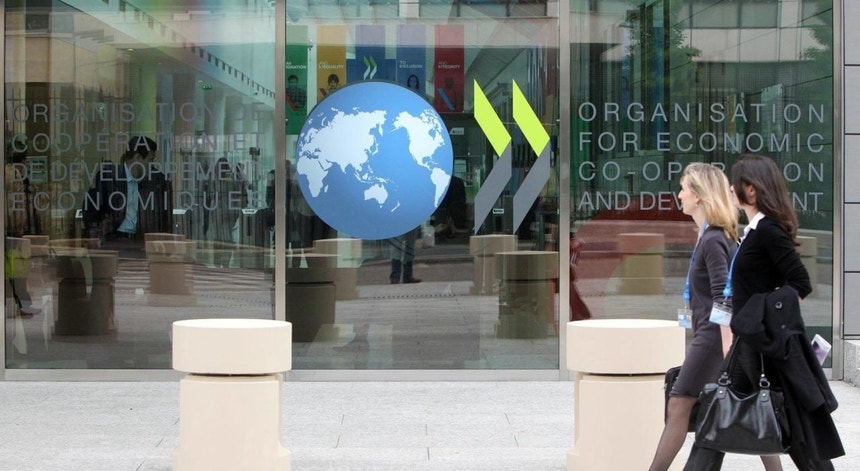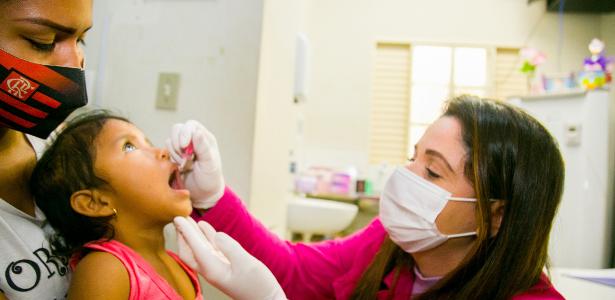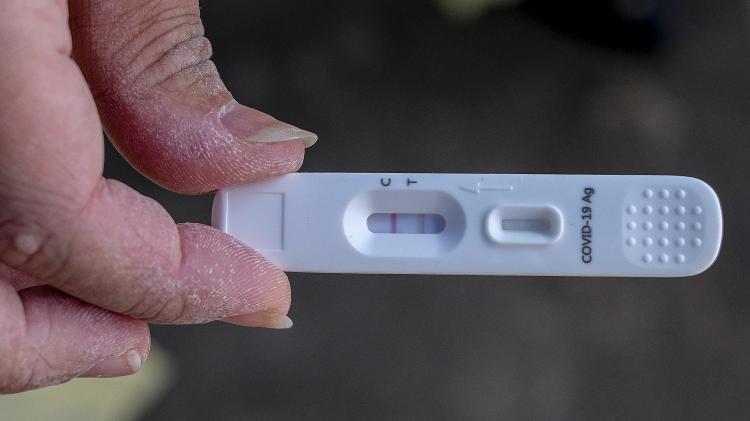President-elect Luiz Inacio Lula da Silva (PT) will take over the government in January 2023 with public health as one of the main challenges and with the lowest budget for the portfolio since 2014 if there are no changes. Brazilians referred to health as One of the main intereststo me data sheet🇧🇷
The new government will have to deal with troubling situations in the region, such as declining vaccination coverage for children, Covid-19, pent-up demand for measures during the period of the most severe health crisis, drug shortages, and a high maternal mortality rate. According to the experts they consulted UOL.
smaller budget. The Ministry of Health’s proposed budget for 2023 is the lowest in ten years and has been set at R$149.9 billion. If maintained by Congress, it represents a decrease of R$22.7 billion compared to 2022, deducting expenses with covid-19.
According to the CNS (National Council of Health), losses could reach R$60 billion if the spending cap, a fiscal rule that limits public spending, is considered. Specifies that the maximum expenditure that the government can incur is equal to the previous year’s budget, and is only corrected by inflation🇧🇷
Also, according to the council, the major cuts affect immunization measures, whose budget fell from R$13.6 billion in 2022 to R$8.6 billion, and Indigenous Health, whose budget was reduced by R$1.4 billion to R$609 million, down 60% .
The reduction should also reach the primary care floor, health care of the population for prevention, control and treatment human immunodeficiency virus🇧🇷lozenges and sexually transmitted diseases, in addition to viral hepatitis and tuberculosis🇧🇷
At the end of October, the National Security Council sent a letter to the United Nations (UN) Health Rapporteur denouncing the withdrawal of resources from the SUS (United Health System).
The Ministry of Economy, in Sut, said that “the preparation of the 2023 budget bill was carried out in a challenging context, amid a high level of benchmarking and a stalemate in allocation of expenditures, which imposed a conservative allocation of resources.”
“The amount available in the Ministry of Health’s decision adjustments reserve, totaling R$10.42 billion, can be allocated to meet the requirements of this portfolio during the 2023 budget process in the National Congress, and the legitimate and sensitive wishes of the environment community. Public policy options are considered the most relevant,” she said. Ministry.
Significant reduction in SUS programs. Health fund cuts, promoted by the government Jair Bolsonaro (PL), it reached 12 programs from the portfolio – if added, losses amount to R$3.3 billion.
report card Health Budget Monitoring, published by the Institute for Health Policy Studies, and Omani, a non-profit civic association, shows that grant funding for residents of Procíncia Medica and in the multidisciplinary area has decreased R$922 million.
Influence the program of implementing health promotion and noncommunicable chronic disease policies such as diabetic And cancer 3.8 million Brazilian reals.
Low vaccination. Specialists point to vaccination as one of the most pressing issues in Brazilian health. According to the Vice President of the Brazilian Society of Immunization, Isabella Palalai, vaccine coverage has been gradually declining since 2015, but in the light of the epidemic it has “decreased sharply”.
Brazil is one of the South American countries that They are at ‘high risk’ of re-infection with polioAccording to a warning issued in September by the PAHO (American Health Organization), the arm of the World Health Organization (WHO).
According to the data of the Ministry of Health, six years ago, 98.2% of the target audience received doses. In 2021, the rate of immunization against the disease was only 67.1%. Currently, according to the data of the National Immunization Program Information System, obtained by the DataSUS platform, the coverage is 61%, which means that the remaining 39% are not completely protected against polio.
a UNICEF (The United Nations Children’s Fund) reported in July that this is the largest sustained decline in childhood vaccinations in nearly 30 years. Although it is a phenomenon observed around the world, Isabella believes that the government has failed to ensure adequate communication to combat fake news against vaccines.
“It is necessary to invest in empathetic communication, it can’t be a call. Zé Gotinha was born in this, to show the population that we care about her, not the coverage, one thing leads to another,” says a doctor.
It also highlights that trust in public authorities is one of the primary factors that make people feel safe to take vaccinations and that it is essential to restore this. “We have seen vaccination become politicized. Vaccination is health.”
For Isabella, one of the factors that drives people to seek vaccination is the perception of danger. “The Brazilian population is pro-vaccine (…) and the main reason a person gets vaccinated is because they are aware of the risk, and are informed of the risks. Meningitisbut due to the outbreak in São Paulo, families are looking for vaccines against meningitis,” the doctor adds.
The epidemic is not over yet. The new government will also have to deal with outbreaks of covid-19. The emergence of a new alternative and poor adherence to the booster vaccine doses Raise the baud rate (Rt)hospitalizations and the risk of a new wave.
In an interview with UOLMicrobiologist Natalia Pasternak states that The disease never went away and “came to stay”.
The specialist explained that the Ministry of Health will face a major challenge to increase vaccination and need to restore the PNI (National Immunization Program).
Vaccination is one of the main problems the new government will face. And vaccination is not just for the virus. Vaccination as a whole, especially children. We have seen an extraordinary drop in the vaccination rate. Getting 65% polio vaccinated doesn’t match Brazil’s vaccine culture
Natalia Pasternak
primary concern. For economist Arthur Aguilar, director of public policy at Ieps, the government should invest in the ESF (Family Health Strategy), which he classifies as “the backbone of SUS.” The ESF is responsible for primary health care care – the main gateway to the health system – and consists of a multidisciplinary team.
“It is a policy that we have a lot of evidence that works. It has been responsible for a significant reduction in infant and maternal mortality, and a reduction in hospitalizations of chronic conditions. However, since 2016, 2017, the pace of expansion has reduced a lot,” he says.
According to Aguilar, the program takes care of people throughout their lives — from prenatal care to old age. Maternal mortality increased from 2019 to 2020, according to report card Issued by the Ministry of Health in August of this year.
“Our population is 72 million people, 34% of the Brazilian population who does not have access to a family health strategy. We are starting to try to understand, even as a subsidy for the new government, how you can change this game?, because it seems to me that one of the greatest legacies that can be For the government to leave it is to end its term with the program that is available to 100% of the Brazilian population. It is financially feasible,” he says.
The president of Abrasco (Brazilian Association for Collective Health), psychoanalyst Dr. Rosana Onocko Campos, criticized the lack of organization of the file and says the consolidated and updated data lacks knowledge of the size of waiting lists for exams, consultations and surgeries. “It’s like driving a car with your eyes closed (…) we’ve never seen a government that instead of strengthening it and trying to improve it, you tried to make it worse.”
Asked in the report about declining vaccination rates and an increase in maternal mortality, the Ministry of Health said it was “closely monitoring the scenario” for COVID-19. In addition, the Ministry constantly stresses, through media campaigns and procedures that are published in all official channels, the importance of supplementing the vaccination schedule with booster doses to ensure maximum protection against the virus.
The transition area you want to reconfigure. a Senator Humberto Costa (PT-PE) stated that the health field of the transitional government Demand from the elected government 22 billion Brazilian riyals What he called “the reallocation of the budget” to the Ministry of Health.
It will be up to Vice President-elect Geraldo Alckmin (PSB), the transition team coordinator, to determine the source of the funds.
On Thursday (10), Alckmin, who is actively involved in discussions about the transition from the PEC, defended investing in the social field and said that Budget will be changed Because it is not done by Lula government.
“The budget that was already in Congress and everyone knows that it is absolutely useless to be able to perform the functions of the state in health, education and business continuity,” he added.

“Wannabe internet buff. Future teen idol. Hardcore zombie guru. Gamer. Avid creator. Entrepreneur. Bacon ninja.”









More Stories
Dengue Fever Bulletin – 2/5/2024 – Blumenau City Hall
What are those “spiders” from Mars we talk about so much? See what science says
4 natural ingredients to eliminate dark circles and puffiness around the eyes